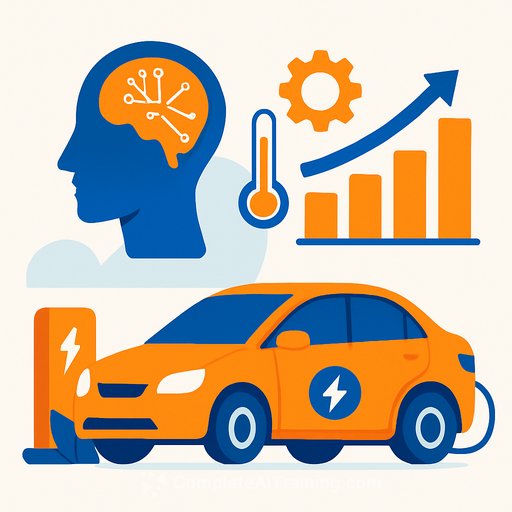ZF's TempAI: AI-Driven Innovation to Boost EV Motor Efficiency
German engineering firm ZF has introduced TempAI, an AI-powered system that enhances temperature control inside electric vehicle (EV) motors by 15%. This improvement translates into higher efficiency, reduced reliance on costly rare materials, and dramatically shortened development cycles—from months down to days.
TempAI operates without adding extra hardware. Instead, it leverages AI software to analyze temperature data using minimal energy, delivering rapid and actionable insights directly to existing motor control units. This enables EV motors to run closer to their safe operational limits, increasing peak power output by 6% and cutting energy consumption by up to 18%, as validated in tests.
Efficiency Gains with Fewer Resources
Electric motors in EVs depend heavily on cooling systems and control mechanisms to maintain performance and safety. ZF’s approach replaces some traditional hardware-heavy diagnostics with AI-based temperature monitoring, eliminating the need for additional sensors or equipment. This not only reduces cost but also accelerates product development timelines.
Otmar Scharrer, ZF's head of development for electrified powertrain technology, emphasized, “We are proud to bring this innovation into series production and thus making a significant contribution to more efficient e-mobility.”
Data-Driven Development for Faster, Sustainable Results
Dr. Stefan Sicklinger, ZF's head of AI, digital engineering, and validation, highlighted how TempAI exemplifies data-driven development by delivering faster and more sustainable outcomes. The AI system's ability to process millions of data points inside electric motors offers engineers deeper insights that traditional methods cannot provide.
This method not only improves performance but also increases reliability, potentially setting a new standard for EV motor diagnostics and management.
Context: Growing EV Market and Policy Challenges
BloombergNEF projects global EV sales to hit 22 million units this year—a 25% increase from last year—underlining the expanding market demand. However, growth faces challenges in some regions. For example, in the U.S., federal EV tax credits are being phased out early, impacting adoption rates despite some states maintaining their own incentives.
EV owners save roughly $1,500 annually on fuel and maintenance compared to traditional vehicles. Beyond cost savings, EVs significantly reduce greenhouse gas emissions and air pollutants linked to millions of health-related deaths worldwide.
Why TempAI Matters for Product Development
- Faster Development Cycles: Reduces testing time from months to days.
- Cost Efficiency: Lowers dependency on expensive materials and extra hardware.
- Performance Improvement: Increases peak motor power by 6% and cuts energy use by up to 18%.
- Actionable Insights: Provides real-time temperature data to optimize motor operation.
For professionals involved in product development, TempAI demonstrates how integrating AI into diagnostics can streamline workflows and improve outcomes without the need for physical redesigns or additional components.
Those interested in expanding AI skills relevant to product development and innovation might consider exploring specialized AI training courses for professionals to stay ahead in applying AI to hardware and software development.
Looking Ahead
ZF’s TempAI marks a step forward in EV motor management by combining AI with existing hardware to unlock efficiency gains. As the EV market continues to grow, such technologies will be crucial for improving performance, reducing costs, and accelerating product cycles.
Continued adoption of AI-driven diagnostics could set new benchmarks for electric mobility and help meet both market demands and environmental goals.
Your membership also unlocks:






